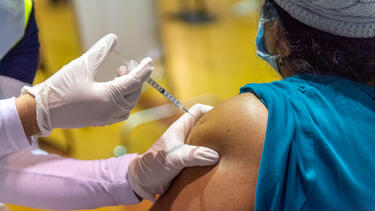COVID19
Going the Last Mile (with Evidence)
A study by Yale’s Mushfiq Mobarak and his colleagues found that nurses on motorbikes with vaccine-stocked coolers could help increase vaccination rates in rural Sierra Leone, showing that it is possible to get health interventions to the most remote and under-resourced areas cost-effectively, in ways that help ensure that the interventions are taken up and used.
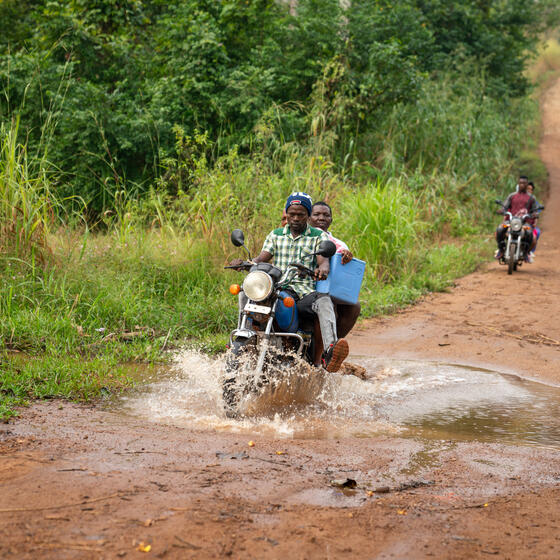
Did COVID-19 Restrictions on Restaurants and Bars Save Lives?
COVID-19 restrictions on restaurants, bars, gyms and salons were among the most controversial and the last to be lifted. A new study looks at whether closures, capacity restrictions, and other limits on these businesses actually lowered the death rate.
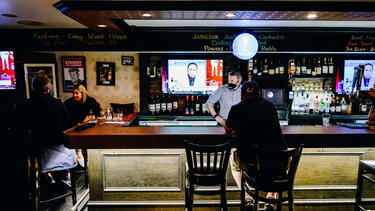
Video: Identifying with a Team Helps Prevent Stress and Burnout among Healthcare Workers
A Yale study conducted in the early days of the COVID-19 pandemic found that feeling like part of a team reduced reported stress and burnout—an insight with implications for how any kind of organization can weather a crisis.

Study in Bangladesh Identifies Keys to Encouraging Mask-Wearing
A team of researchers, including Yale SOM’s Jason Abaluck and Mushfiq Mobarak, tested multiple methods for encouraging use of masks in Bangladesh and identified a group of simple interventions that tripled usage.
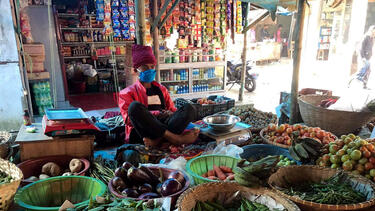
How Nudges Could Boost Vaccination Rates
A study co-authored by Yale SOM’s James Choi tested a variety of text messages to prompt people to get flu vaccines, offering one potential tool to encourage those who aren’t rushing to get a COVID shot.

To Extend Vaccines’ Reach, Distribute Them through Dollar Stores
A new Yale study says that a partnership with the Dollar General retail chain, which is being considered by the CDC, could bring vaccination sites substantially closer to low-income, Black, and Hispanic households in many parts of the United States.

To Convince the Vaccine Hesitant, Understand Their Underlying Motivations
What will change the minds of those reluctant to get the COVID-19 vaccine? Yale SOM’s Vineet Kumar and two Yale doctors used the tools of consumer marketing to survey hesitant healthcare workers and analyze their responses.

How Connecticut Accelerated Its Vaccinations
Josh Geballe ’02, Connecticut’s chief operating officer, explains the state’s controversial decision to switch to age-based eligibility for COVID vaccines—and says it likely saved lives.
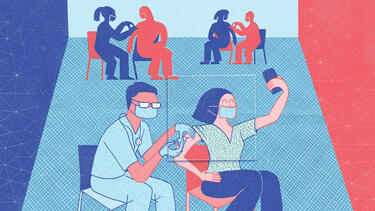
How COVID Has Worsened the Opioid Epidemic
There is another epidemic we cannot lose sight of: the opioid epidemic, which has become only more acute in the United States and elsewhere amidst the disruptions and stress caused by COVID-19.
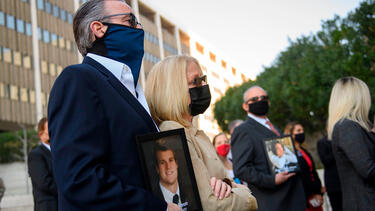
How COVID-19 Is Making Gender Inequality Worse in Low-Income Countries—and What to Do About It
Gender disparities in social and economic outcomes, already larger in the developing world than in rich countries, have been exacerbated by the pandemic. Policy action is badly needed to address the compounding of existing inequalities and protect the most vulnerable women.
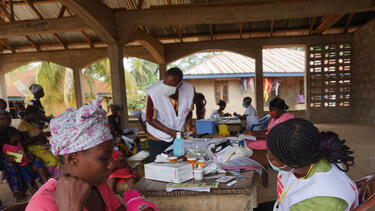
The Vaccines Bring Hope—and New Questions
A year into the COVID-19 pandemic, vaccines are a reality—and now we face the logistical and medical complications of inoculating a vast population while infection rages and the virus mutates. We asked Yale SOM’s Dr. Howard Forman, a public authority on the pandemic, for an update.
